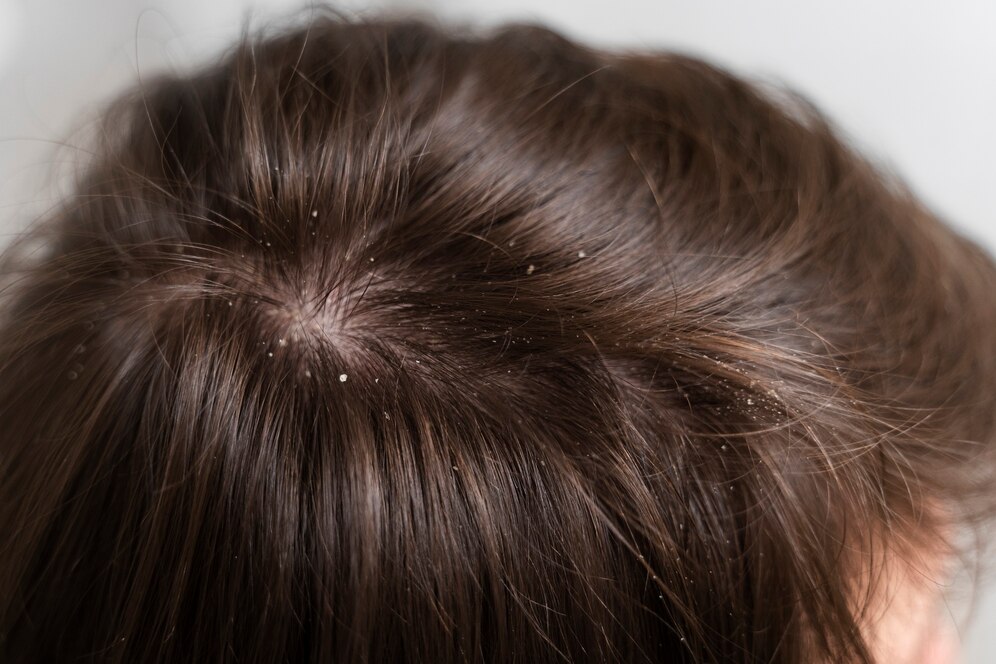
Greasy dandruff, also known as seborrheic dermatitis, is a common scalp condition that causes flaking, itchiness, and redness. While many factors contribute to this pesky problem, one often overlooked aspect is diet. In this blog post, we’ll explore the connection between diet and greasy dandruff and offer dietary tips to help manage this condition.
Understanding Greasy Dandruff
Greasy dandruff occurs when the sebaceous glands in the scalp produce excess oil, leading to an environment where Malassezia yeast can thrive. This yeast, naturally present on the skin, can trigger an inflammatory response when it grows out of control, resulting in flaky, itchy patches.
The Diet-Dandruff Connection
While the exact relationship between diet and dandruff isn’t fully understood, several dietary factors have been linked to the severity and frequency of dandruff outbreaks:
- Fatty and Sugary Foods: Diets high in unhealthy fats and sugars can exacerbate dandruff. These foods can lead to increased oil production and inflammation in the body, including the scalp.
- Nutrient Deficiencies: Lack of essential nutrients, particularly those that support skin health, can contribute to dandruff. Key nutrients include:
- Zinc: Essential for skin health and regulating oil production.
- B Vitamins: Particularly B6 and B12, which are vital for healthy skin.
- Omega-3 Fatty Acids: Help reduce inflammation and maintain skin hydration.
- Hydration: Dehydration can lead to dry skin, including the scalp. Drinking enough water is crucial for maintaining healthy skin and preventing dandruff.
Foods to Eat for a Healthy Scalp
Incorporating certain foods into your diet can help manage and potentially reduce greasy dandruff:
- Leafy Greens: Rich in vitamins A, C, and K, leafy greens like spinach and kale support overall skin health and reduce inflammation.
- Fatty Fish: Salmon, mackerel, and sardines are excellent sources of omega-3 fatty acids, which help maintain a healthy scalp and reduce dandruff.
- Nuts and Seeds: Almonds, walnuts, and flaxseeds are packed with nutrients like zinc and omega-3s, which support skin health and reduce inflammation.
- Fruits and Vegetables: A diet rich in colorful fruits and vegetables provides antioxidants that combat inflammation and promote healthy skin.
- Probiotics: Foods like yogurt, kefir, and sauerkraut contain probiotics that support gut health, which is linked to skin health and can help reduce dandruff.
Foods to Avoid
Certain foods can worsen greasy dandruff and should be limited:
- Sugary Foods: Excessive sugar intake can lead to inflammation and increased oil production, worsening dandruff.
- Processed Foods: Highly processed foods often contain unhealthy fats and additives that can exacerbate dandruff.
- Dairy: For some people, dairy can trigger inflammation and worsen dandruff. If you notice a connection, consider reducing your dairy intake.
Conclusion
While diet alone may not cure greasy dandruff, it plays a significant role in managing the condition. By incorporating nutrient-rich foods that support skin health and avoiding those that can trigger inflammation and excess oil production, you can take a proactive approach to reducing dandruff. Remember, what you eat matters not just for your overall health but also for the health of your scalp.
If you continue to struggle with dandruff despite dietary changes, it’s essential to consult with a healthcare professional for personalized advice and treatment options.
The Allure of Designer Skirt & Top Sets
Printed Lehenga Sets: A Designer’s Guide to Fabric and Fashion Trends